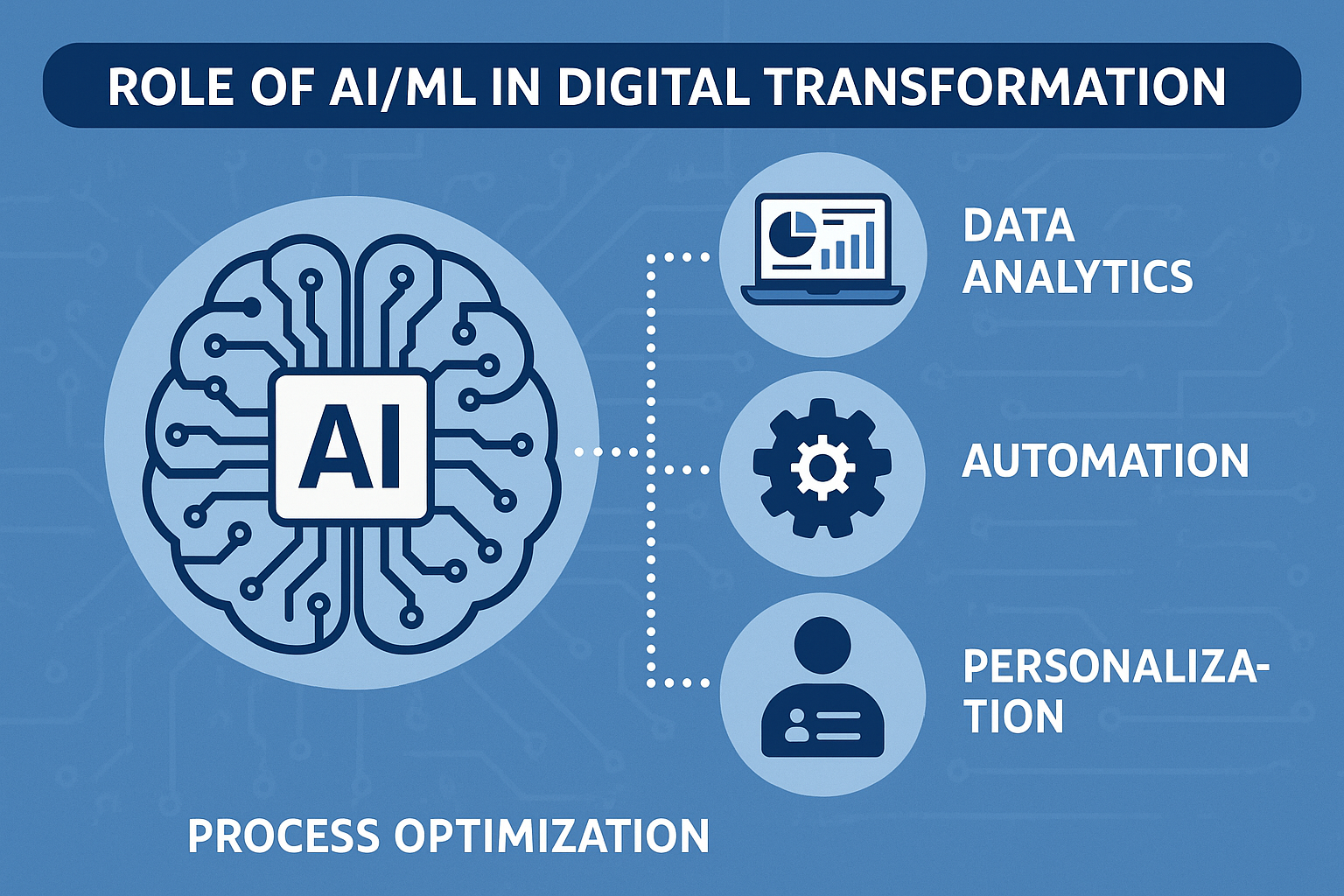Digital transformation isn’t just about digitizing processes—it’s about reinventing them for speed, intelligence, and scale. AI/ML acts as the engine of this reinvention. It turns data into decisions, automation into autonomy, and predictions into performance.
Why AI/ML Matters in Digital Transformation
Traditional digital transformation focuses on:
Process digitization
Cloud adoption
Application modernization
But with AI/ML, organizations go beyond automation to optimization and innovation. It’s not just “doing things faster”—it’s “doing smarter things.”
AI is not a tool you add; it’s a capability you embed.
Key AI/ML Use Cases in Transformation
| Domain | AI/ML Use Case | Business Outcome |
| Customer Service | Chatbots, NLP-based assistants | 24/7 support, reduced service costs |
| Sales & Marketing | Predictive analytics for targeting | Higher conversion rates |
| Operations | Demand forecasting, route optimization | Lower waste, faster delivery |
| HR | Resume screening, attrition prediction | Better hiring, reduced turnover |
| Finance | Fraud detection, credit scoring | Risk reduction, faster approvals |
These aren’t science projects—they’re mission-critical levers.
Embedding AI/ML into the Transformation Journey
1. Start with the problem, not the model
Ask: ―Where do we make too many guesses?‖
Prioritize pain points where intelligence improves
2. Lay the data foundation
AI is only as smart as the data it’s trained
Invest in clean, connected, and context-rich data
3. Build trust, not just models
Explainability and fairness matter—especially in regulated
Stakeholder confidence drives
4. Scale responsibly
From pilots to platform: AI must shift from POC to
Design for governance, monitoring, and feedback
Pitfalls to Avoid
Tech-first mindset → Cool models, no impact
Poor data quality → Garbage in, garbage predictions
No business ownership → AI without accountability
Lack of talent or MLOps discipline → Stalled projects
Conclusion
AI/ML is not a phase of digital transformation—it’s its multiplier. When infused into core operations and decisions, it shifts the enterprise from reactive to predictive, and from static to adaptive. The future isn’t just digital—it’s intelligent.





